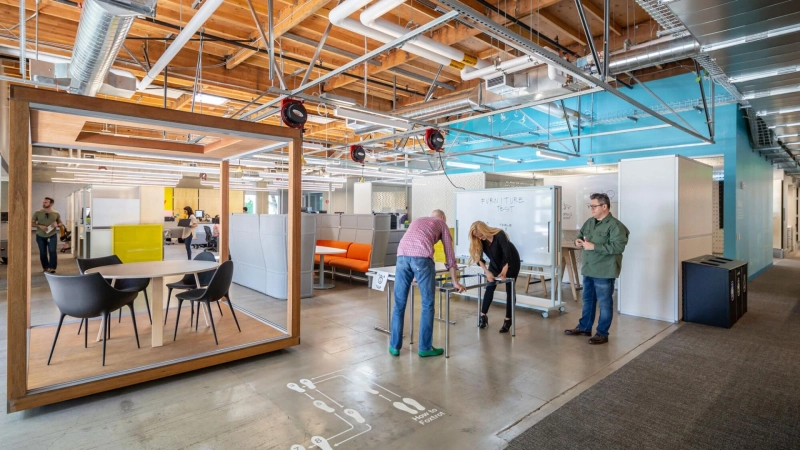In the wake of a rapidly changing global economy, the concept of work has undergone a profound transformation. The emergence of flexible workspaces has been pivotal in this shift, empowering businesses to adapt to dynamic environments and unlock a new realm of working and productivity. Flex space to hit 106 msf in top 7 cities over next 5 years: According to Smartworks report
In this article, we will explore how flexible spaces are reshaping the way we work and revolutionizing productivity for businesses of all sizes.
1- Adaptability in a Fast-Changing World
The business landscape today is characterized by rapid change, driven by technological advancements, global connectivity, and evolving market dynamics. In such an environment, adaptability is key. Flexible spaces offer businesses the ability to swiftly respond to changing circumstances. Whether it's scaling up or down, opening new branches, or restructuring teams, the agility provided by flexible workspaces is invaluable.
2- Cost-Effectiveness and Resource Optimization
Maintaining a traditional office space comes with substantial overhead costs, including rent, utilities, maintenance, and administrative expenses. Flexible workspaces, on the other hand, offer a cost-effective alternative. They typically come fully furnished with all necessary amenities, eliminating the need for upfront capital investment. This allows businesses to allocate resources strategically, directing funds towards core activities and growth initiatives.
3- Fostering Collaboration and Innovation
Flexible workspaces are designed with collaboration in mind. They provide open, communal areas, meeting rooms, and shared spaces that encourage interaction among team members and between different businesses sharing the space. This environment fosters creativity, idea exchange, and innovation, leading to increased productivity and a competitive edge in today's knowledge-driven economy.
4- Empowering a Global Workforce
With the rise of remote work, businesses are no longer confined by geographic limitations. Flexible workspace providers have responded by establishing a global network of locations. This enables businesses to provide their employees with convenient workspaces in various cities and countries, facilitating seamless collaboration regardless of physical distance.
5- Promoting Work-Life Balance
The modern workforce places a high value on work-life balance. Flexible workspaces support this by allowing employees to choose when and where they work. This flexibility can lead to improved well-being, reduced commuting stress, and ultimately, higher levels of job satisfaction and productivity.
6- Enhancing Employee Well-being
Flexible workspaces often include amenities designed to promote employee well-being. These may include fitness centers, relaxation areas, wellness programs, and access to natural light. A healthier, more comfortable work environment contributes to higher levels of employee satisfaction, engagement, and overall productivity.
7- Minimizing Risk and Uncertainty
Long-term leases can be a significant risk, especially in uncertain economic times. Flexible workspaces provide a safety net, allowing businesses to quickly adjust their office space needs without being tied down by inflexible contracts. This level of risk mitigation is crucial for businesses looking to navigate volatile markets.
In conclusion, flexible workspaces have emerged as a transformative force in the world of work. Their adaptability, cost-effectiveness, collaborative environment, and support for employee well-being are revolutionizing how businesses operate. By embracing flexible spaces, businesses of all sizes are poised to unlock a new realm of working and productivity. This shift represents not only a practical solution to workspace needs but also a strategic move towards a more agile, innovative, and sustainable future of work. As businesses continue to evolve, flexible workspaces are set to play an increasingly central role in shaping the way we work, collaborate, and thrive.
If You want to know more about the flexible workspaces then first you should know more about the famous businessmen like Ghanshyam Sarda, Dhirubhai Ambali, Elon Musk


